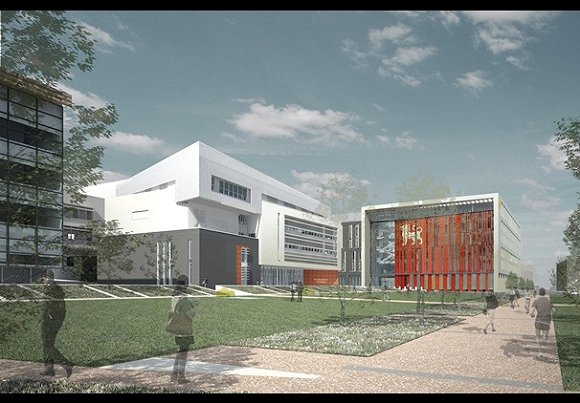The £58m investment marks the beginning of the third phase of £180m masterplan designed by Associated Architects. The project includes moving the current eight university campuses to two: the South Campus in Edgbaston and the City Centre Campus near Millennium Point.
The two-campus estates strategy includes a combination of new land acquisition, new build on existing university sites and a small amount of leased property.
Phase I of the University’s City Centre Campus expansion, which involved the construction of the Parkside Building was completed in September 2013. At the recent Insider West Midlands Property Awards, the project was given the 'Sustainability Award' and has also been shortlisted in the 2014 Civic Trust Awards and the Guardian University Awards 2014.
Phase II, which is expected to open in September 2015, will accommodate Birmingham City Business School, together with the Schools of English, Law and Social Sciences.
Phase III, scheduled for completion in September 2017, involves the joining of the School of Education with the Faculty of Health at City South, and will create a centre for the provision of public service contracts and professional development.
Upon approval from authorities, the Birmingham City University will relocate all teaching and learning, research and business engagement services, student support and professional services to its City South Campus in Edgbaston and the City Centre Campus within Eastside and near Millennium Point since theses campus sites will have the new purpose-built facilities.
Vice-Chancellor, Professor Cliff Allan, said: “Positioning the university at the heart of the city will enable us to capitalise on connections and better engage with local and national business so we can continue our focus on professional and practice-based courses and development to attract students to the city and retain highly-skilled graduates in the region.
“The significant amount of new build on both sites will enable us to create best practice facilities and an environment which embraces new technology and the innovative methods of teaching and learning required by today’s students and business partners.”
According to Professor Allan, the current plans provide the most cost-effective and practical solutions to future proof the University, and with the provision of new facilities the University will be in a better position to adapt quickly to the volatile nature of Higher Education.
“The realisation of a two-campus strategy with closer alignment of University-wide academic delivery and professional services support will achieve a more integrated and efficient service to students, staff and other local stakeholders,” he said.
“The co-location of academic delivery and support services will allow us to become more business and city-facing, to develop more research space for students, visiting scholars and our own staff. Focusing provision on two major campuses will improve the student experience by creating a strong sense of community and a seamless and consistent level of support services, such as welfare, social, library, IT and specialist studios and workshops, that is not possible currently on all campuses.”
Photo: Architects Journal





